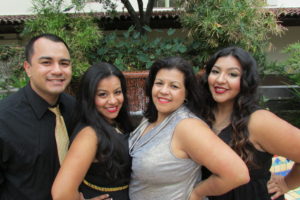In this weeks readings we read the very interesting poem by Marcela Christine called, “Machismo Is Part of Our Culture”. It is something that personally hit home for me. Machismo is something that unfortunately it is engraved from generation to generation. Men are conditioned to be superior and the dominant gender. Woman are conditioned to be okay with being the submissive one. However, if at some point the woman thinks she can voice her opinion she is to be reminded by the man that she can’t. Gender roles are shoved down kids throats since the moment they are born. The man is always glorified for being a ladies man. It is okay to be a “macho” because that is the only way they can prove their masculinity.
I found an interesting article called “Machismo and Sexual Identity” that goes into depth with the machismo nature. Something that caught my attention as I was reading it was a particular sentence was, “Machismo sexual behavior is a source of pride for males and men must prove their manliness by upholding their sexual dominance.” As a psychology major the word “behavior” caught my eye. Behavior is something that can be modified which means machismo is something that can be eliminated. Machismo still being present in our culture is solely our faults. It needs to be cut out because it brings nothing good to our culture. How Marcela poems says,” At home you’re no patron. your liberated gabacha has gotcha where she wants ya.” This shows how it’s not in their nature, it is something that they want to believe they need to do. If a “macho” is with a woman who is not conditioned to be submissive they adapt quite well and do not exert that “machismo.” Our culture needs to make machismo irrelevant. La Raza should feel ashamed to still have machismo as one of character traits. I agree, that machismo is part of our culure, that poem is 100% true. I also believe that we need to start making real changes and modify the machismo behavior.
http://web.stanford.edu/group/womenscourage/Repro_Latin/ekobash_HIVmachismo_Latin.html



